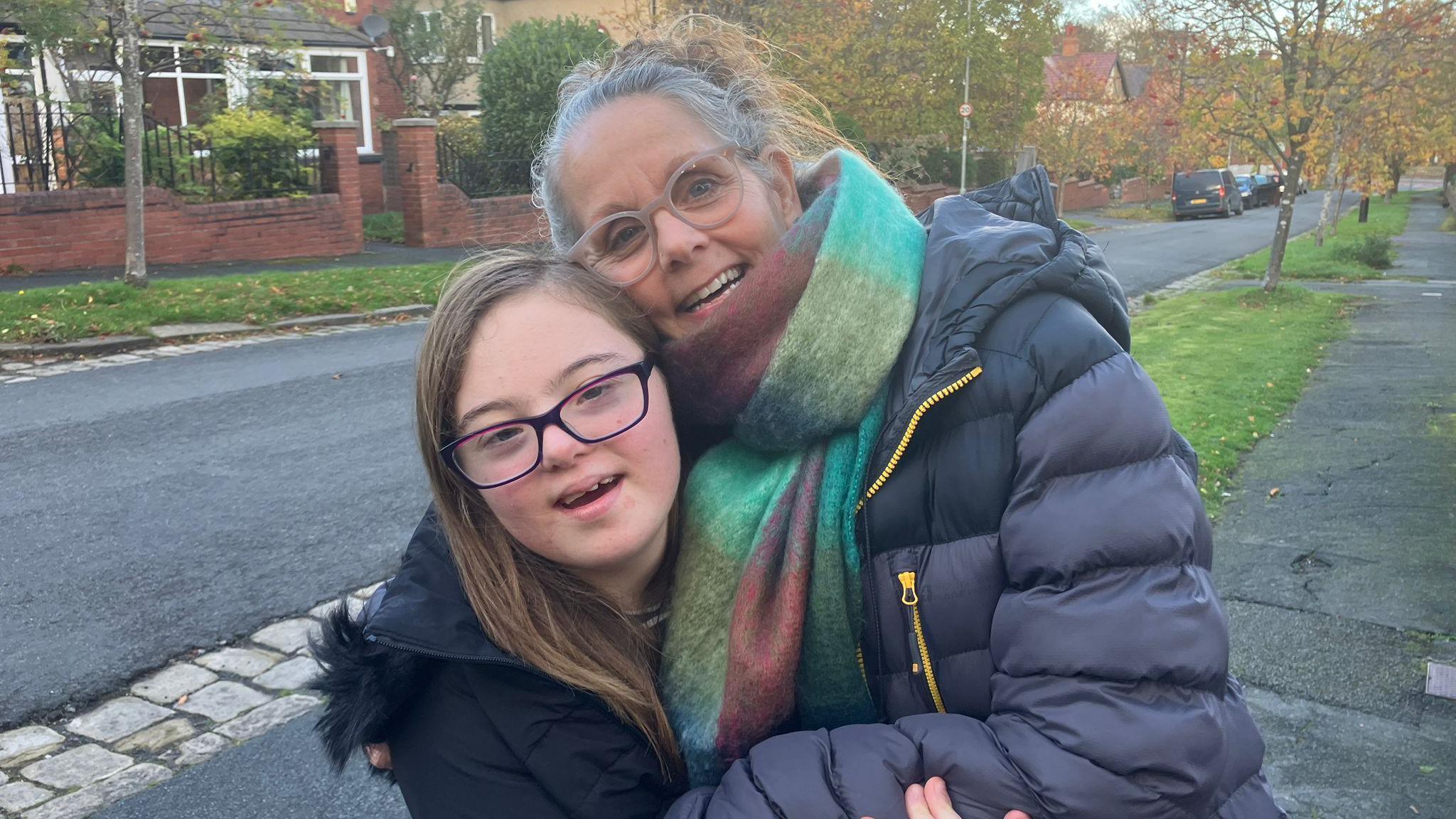Councils paying school transport costs for 470,000 pupils in England

- Published
Nearly half a million under-16s in England use taxis, buses and other transport funded by their local authorities to get to school, according to government estimates.
The new data comes amid warnings from councils about the growing cost of providing transport for pupils with special educational needs and disabilities (Send).
A head teachers' union said the transport played a "crucial" role in getting many children to school, but councils were having to make cutbacks.
The data suggests that 6% of all pupils in England receive funded transport, and that 40% of those pupils aged under 16 (180,000) have Send.
Local authorities spent £1.5bn on transport for under-16s with Send in the 2023-24 financial year, about two-and-a-half times, external what it was in 2015-16.
The new data from the Department for Education (DfE) - which is the first of its kind - is based on voluntary submissions from three quarters of local authorities in February and March.
It suggests that, across England:
470,000 pupils under the age of 16 (6% of the total) use home to school transport
50,000 pupils over 16 also use funded transport
9% of under-16s who receive funded transport because of Send travel alone in single-occupancy vehicles
Local authorities in England are required by law, external to arrange funded transport for children who live a certain distance from school, who cannot walk because of Send or mobility problems, or who cannot walk due to safety reasons.
The Local Government Association, which represents councils in England, said the pressure had ramped up over the past three years.
"Continuing to fulfil the current statutory responsibilities for home to school transport is becoming increasingly financially unsustainable, posing a real threat of bankruptcy for some, and necessitating cuts to other vital aspects of children's services provision in many more," it said in a report this summer.
'Equality of opportunity is really important'

Mum Ailith says she may need to drive two hours each way to get her daughter Talia to school after she turns 16
Ailith Harley-Roberts, a Send parent and campaigner, is concerned that her 15-year-old daughter Talia's travel funding to and from school will stop at 16.
This will be a "massive issue" for the family's income, Ailith says, if she and her husband have to drive several hours a day to drop Talia off instead.
Their council, Leeds City Council, announced earlier this year that Send students aged over 16 will no longer be provided with council-funded school transport in order to save the local authority £800,000. The council has said it was a "decision no one wanted to make", but the service was not sustainable in its current form.
Ailith is campaigning against the changes.
"I want her to be in a place of education, which is her right, that best meets her needs," she says.
"I don't want to put her somewhere that 'will do', just because of the issues with transport."
Many children with Send need specialist provision, and cannot go to a local mainstream school, she says.
"I think it's really important to remember that people have a right to their education," Ailith says.
"That equality of opportunity is still really important."
Reform of special educational needs system delayed until 2026
- Published22 October
Don't scrap care plans for children with special educational needs, say MPs
- Published18 September
Having autism should not mean having to fight for our education
- Published23 October
Rob Williams, senior policy advisor at school leaders' union the NAHT, said funded transport "plays a crucial role" in helping many children "attend school regularly and develop their independence".
"However, a growing number of councils are reducing transport provision due to increasing budgetary pressures, and when children simply cannot get to school this threatens to deepen existing attainment gaps and place even more pressure on already stretched parents," he added.
Ministers have faced calls not to cut education, health and care plans (EHCPs) for children and young people with Send.
Last month, the education committee recommended that the government keep them.
The National Audit Office has previously said the Send system in England is "broken", not financially sustainable and failing to deliver better outcomes for children and young people.
Cllr Bill Revans, Send spokesperson for the County Councils Network, said the current system "does not work for young people, families and councils alike".
The DfE announced last week that it was delaying reforms to the Send system and other policy proposals for schools in England until next year.
Education Secretary Bridget Phillipson said there would be a "further period of co-creation, testing our proposals with the people who matter most in this reform".
Cllr Revans said that delay was "massively disappointing", but that it was vital the government used the time to "set out genuine root and branch reform to the system".
School Standards Minister Georgia Gould said the schools white paper would "ensure more children can have their needs met in their local school".
She said work had already begun to improve the system, and added: "My message to families is that it won't stop here. We're absolutely determined to deliver a better system that supports your children at every stage.
"Over the next few months, I'll be meeting with more parents across the country to make sure your experiences are at the very heart of our reforms."
Additional reporting by Wesley Stephenson and Hayley Clarke.